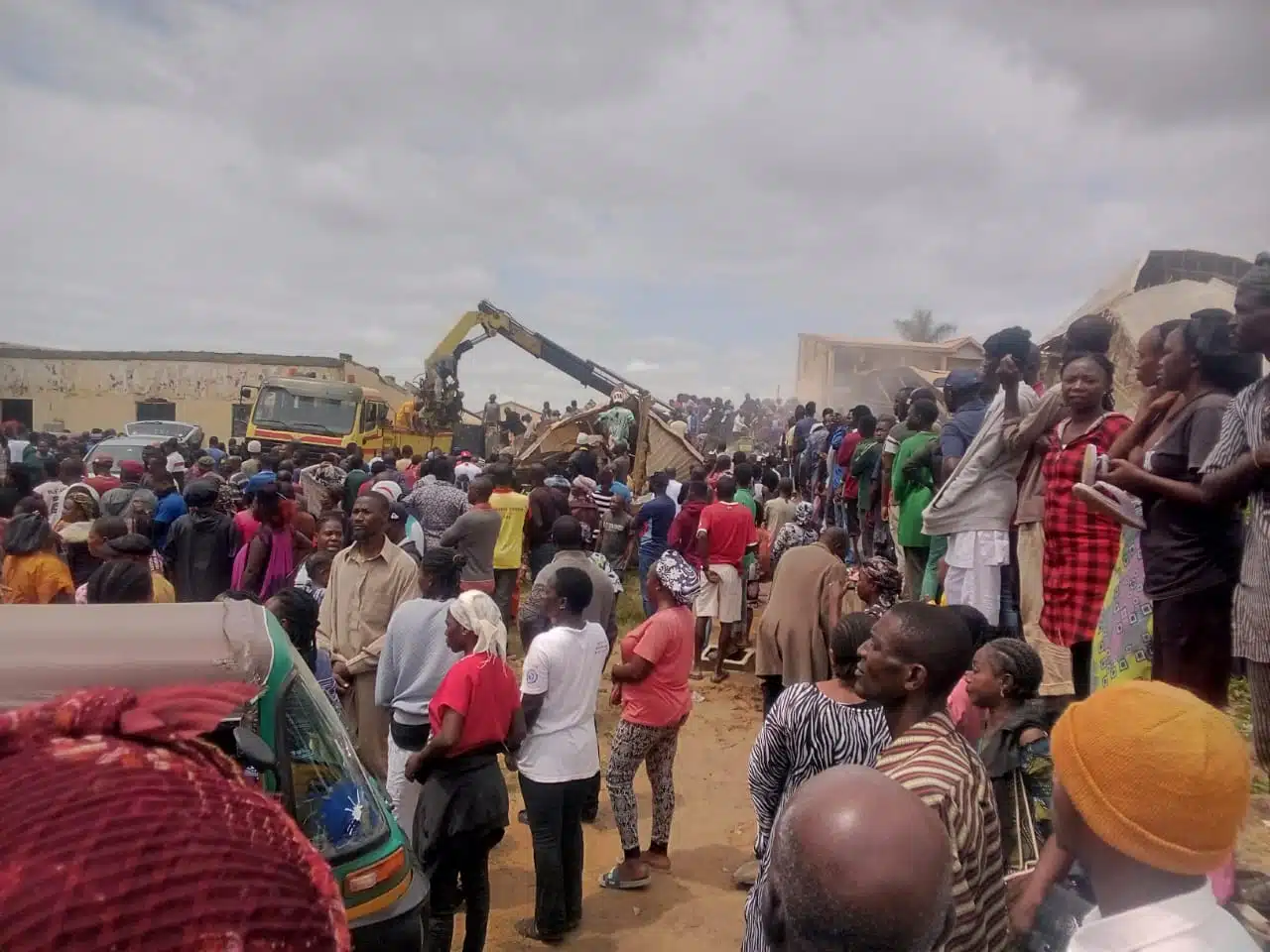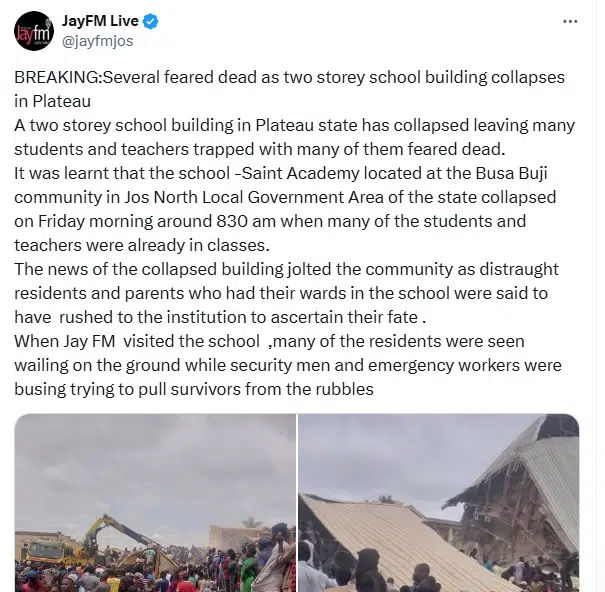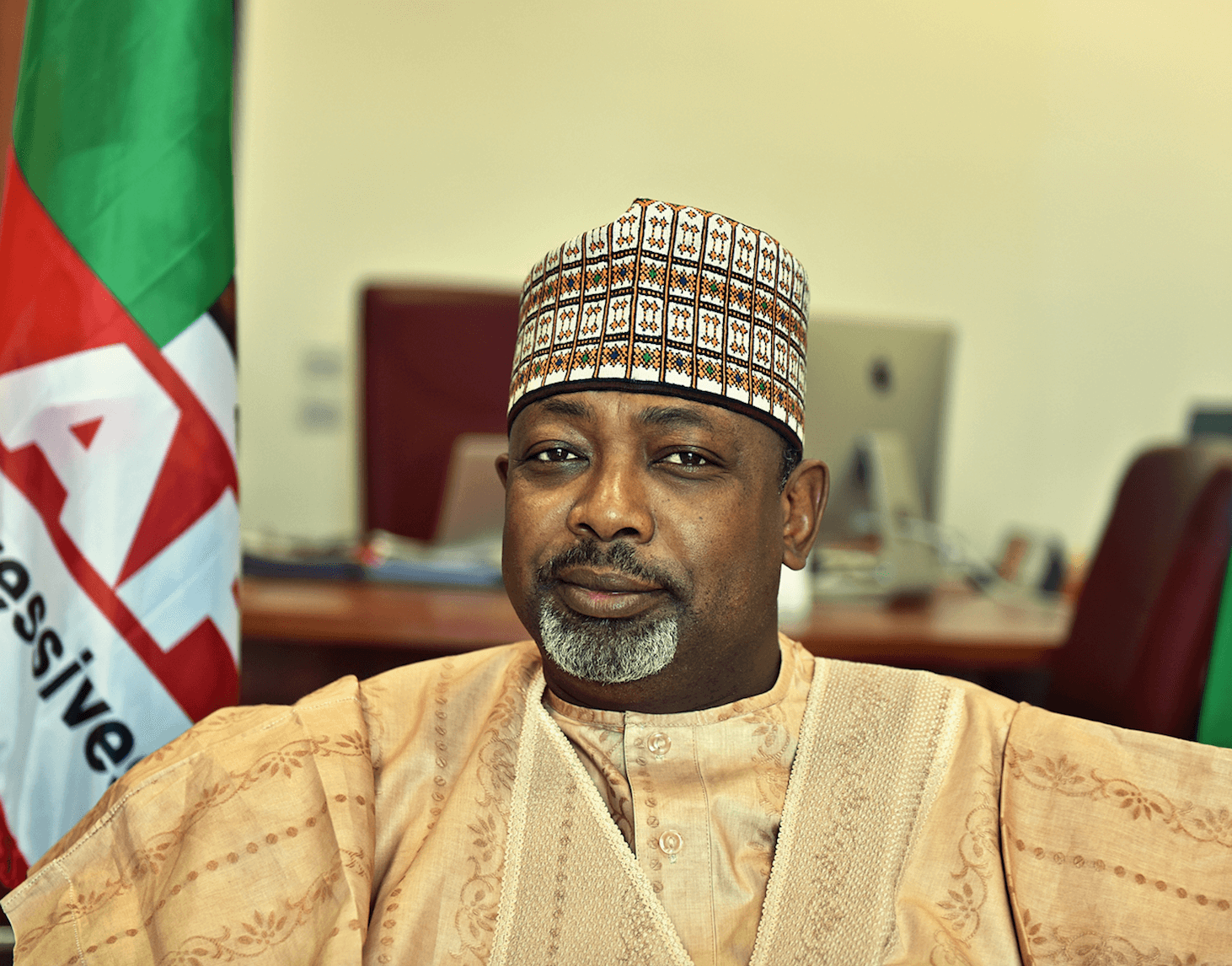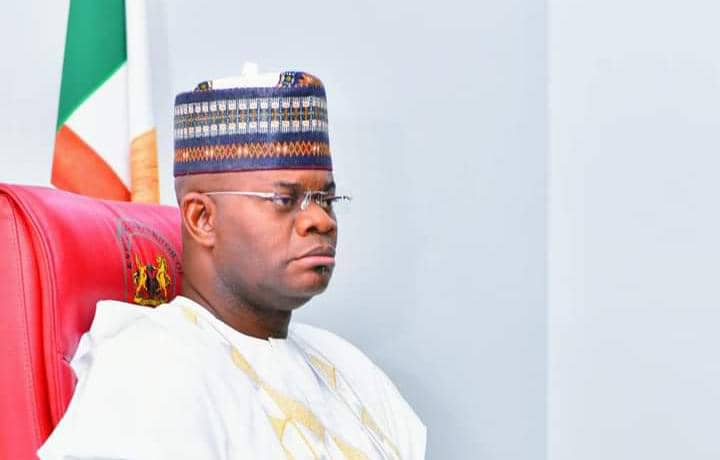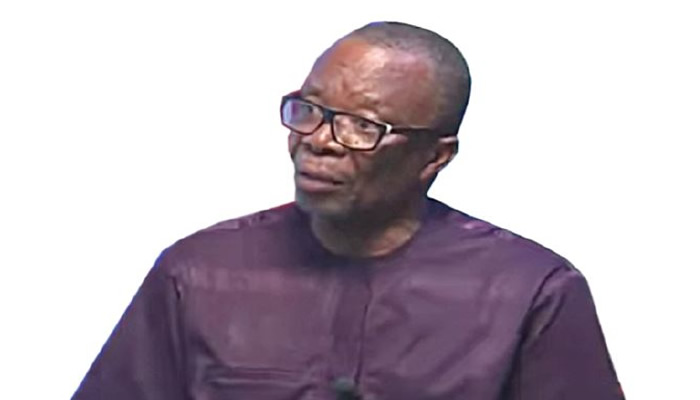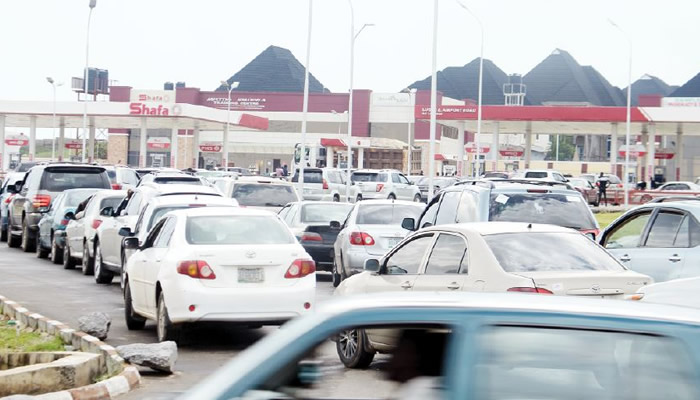Nigerian Fuel scarcity is gradually surfacing in Lagos and other parts of the country as private depot owners hiked the ex-depot price of petrol from N630 to N720 per litre.
This came as fuel scarcity deepened in Abuja and the adjoining states on Sunday with some filling stations dispensing PMS as high as N900/litre.
Our correspondents report that a number of filling stations in Lagos, Ogun and some states have run out of stock as they refused to buy high-priced fuel from the private depots.
Speaking in an interview with one of our correspondents on Sunday, the National Vice President of the Independent Petroleum Marketers Association of Nigeria, Hammed Fashola, said many filling stations did not open for business because they had no fuel in their tanks.
He said the Nigerian National Petroleum Company Limited, which is the sole importer of petrol at the moment, should explain to Nigerians what was happening with the product.
“Those that shut their stations do not have fuel to sell. When you don’t have fuel, you cannot open your station. That is the problem. You know the NNPC is the sole importer of this product. I think it is in the best position to tell us what is actually going on.
“Currently, independent marketers cannot buy what the private depots are selling. They are selling fuel between N715 and N720 per litre. How much will marketers sell the product? Look at the cost of bringing it to their depots; with transportation and other depot expenses, it will be too costly for them. That is why the stations are shut down. Some marketers refuse to go and buy because they know the masses cannot afford high-priced petrol in this economy. That is the situation for now,” the IPMAN leader stated.
Our correspondents learnt that the third parties, who are private depot owners, used to sell PMS to independent marketers at the rate of N630-650/litre before now, while the NNPC sells petrol to major marketers at a price below or around N600.
On many occasions, leaders of IPMAN have appealed to the NNPC to supply them with petrol directly like they do to major marketers, but the NNPC has yet to yield to that call.
Fashola appealed to Nigerians to avoid panic buying, saying they should buy what they need so that the fuel in circulation could go round.
It was gathered that the major marketers sold petrol below N650 while the independent marketers sold between N750/litre and N800 /litre.
Multiple officials confirmed to one of our correspondents that officials of the Nigerian National Petroleum Company Limited stormed the various depots in Apapa on Friday, mandating depot owners to prioritise fuel supply to the Federal Capital Territory, Abuja, where the fuel queues were initially noticed on Friday.
Abuja prioritised
On Saturday and Sunday, many trucks were reportedly directed to Abuja to reduce the queues in the FCT, leaving Lagos and other places with little supply.
One of the officials disclosed that the NNPC was rationing PMS to depots due to the fuel supply gap.
This is coming barely three days after a report by Reuters claimed that Nigeria’s debt to suppliers of Premium Motor Spirit had surpassed $6bn, doubling what it was since early April, as the NNPC struggled to cover the gap between fixed pump prices and international fuel costs.
Although this was denied by the NNPC, the Reuters report stated that the national oil company began struggling early this year when late PMS payments surpassed $3bn.
The company, it said, had yet to pay for some January imports which traders put between $4bn and $5bn.
“The only reason traders are putting up with it is the $250,000 a month (per cargo) for late payment compensation,” one industry source said.
At least two suppliers were said to have stopped participating in recent tenders after hitting self-imposed debt exposure limits to Nigeria, meaning they will not send more PMS until they receive payments.
It was reported that Nigeria’s tenders to buy gasoline in June and July were smaller, traders told Reuters. NNPC will import via tender about 850,000 tonnes in July, according to the Reuters report quoting sources, down from the typical one million tonnes in previous months.
Meanwhile, PUNCH findings show some marketers have refused to supply petrol to independent marketers, who own the larger percentage of the filling stations in Nigeria. This, it was gathered, was because the depots/marketers were getting limited supplies from the NNPC.
“Currently, we focus on our filling stations. We get less than 50 per cent of what we usually get from the NNPC now. So, we make sure we feed our stations first before we consider selling to independent marketers. That is why most of them are out of stock. You know they don’t have access to the NNPC and the little we get is not even enough for our stations,” one of the depot operators told The PUNCH on condition of anonymity because was not authorised to speak on the matter.
The operator mentioned that the few depots selling to IPMAN members sell at higher prices as demand overshoots supply.
Our correspondents report that queues were returning to Lagos as of Sunday, creating fears among residents, who have yet to forget the fuel scarcity that almost grounded the economy in May.
When our correspondent visited some fuel stations across the state, it was observed that some fuel stations had adjusted the prices of PMS upward.
The PUNCH reported that fresh queues for the product surfaced in Abuja, parts of Niger and Nasarawa states on Friday, following the closure of many filling stations operated by independent marketers.
Dealers closed their retail outlets due to their inability to access petrol as a result of the hike in the ex-depot price of the commodity to N710/litre by private depot owners.
Motorists besieged the few stations that dispensed petrol on Friday; particularly those operated by the Nigerian National Petroleum Company Limited and some major oil marketers in Abuja and neighbouring states.
It was noted that the situation was extending to Lagos. Out of about 10 fuel stations along the Ikotun to Egbeda axis, only about two stations were dispensing at the time of filing this report.
At Ikotun, one of the outlets belonging to the NNPC that was selling for N568 per litre had long queues while others were not dispensing. At the Igando-Ikotun axis, only an outlet belonging to Petrocam sold at N820 per litre.
Long queues
The PUNCH also observed that an outlet belonging to TotalEnergies along Mushin Road, in Isolo, sold fuel at N615 per litre with a long queue of waiting buyers.
Meanwhile, a Technoil filling station at Isolo Bustop was not selling fuel at the time of filing this report. Also, the NNPC filling station on the same axis that sold for N568 per litre was crowded with cars.
Our correspondent further observed that there were no fuel attendants at an AP filling located along Okota Road, as the outlet was closed at the time of filing this report.
Al Morouf filling located along Ilasa Road only sold to a few customers.
A motorist who simply gave his name as Mr Emmanuel Anyebe, said, “They said they have removed fuel subsidy and by that, we assumed that what happened in the telecommunication industry would happen to the oil and gas sector, but it didn’t. It is not as if there is scarcity, there is no scarcity anywhere. I asked at the fuel station why the queue all they could say was that they had not been able to get the product. He said that about six tankers they ordered in the last two weeks were only able to get one tanker delivered to their station. This is just unnecessary suffering that is how I see it, they suffer people and waste people’s time unnecessarily.”
The PUNCH gathered that the AP Fuel Station at Ilasamaja experienced intermittent fuel sales on Sunday.
The station sold fuel in the morning but stopped operations in the afternoon, resuming sales later in the evening. Customers willing to pay a premium could purchase five litres of fuel at a rate of N4,000.
“We sold at N615 per litre today but we have stopped for now. However, if you are desperate, we can sell to you at a higher rate,” a customer attendant at the AP Fuel Station revealed.
Meanwhile, the General Fuel Station in Sadiku had no fuel available when visited by our correspondent, exacerbating the fuel scarcity crisis in Lagos.
A motorist simply identified as Segun in Nepal, Akowonjo, Lagos State, told our correspondent that he purchased fuel at the rate of N650, adding that the queue was becoming unbearable.
“I paid N650 per litre, and it is annoying because I have been buying it like this for the longest time, and I think the government needs to do something about it, but then again, we have no choice.
A commercial driver, Timothy stated that he purchased fuel at Petrocam in Ikeja for N670.
He said, “Things keep increasing, the dollar is high, and all these producers are storing the fuel somewhere. They even mentioned that the prices might be higher.”
In Ogun State, checks by our correspondent revealed that petrol was sold between N700 to N800 amid long queues.
Our correspondent learnt from a resident, Emmanuel Ogbonna, that Ebefem fuel station in Abeokuta dispensed petrol at the rate of N720.
Emmanuel decried the difficulties experienced in getting petrol as there seems to be a return of fuel scarcity.
Emmanuel said, “I bought fuel at N720 in Ebefem filling station. There was no queue at the time I visited the station but major fuel stations like NNPC were not dispensing fuel when I visited yesterday (Saturday) evening. It seems petrol is scarce.”
A fashion designer in Abeokuta who identified himself as Ibrahim told our correspondent that he purchased the product at the rate of N750 at a private fuel station.
“My apprentice got the fuel at N750 at Oyinkansola. This is affecting my business.”
Further checks in the Oloka area of Imeko-Afon revealed that petrol was dispensed at N850 per litre.
A resident, Ade Akinola, told our correspondent that petrol was dispensed at the rate of N850. He blamed the Federal Government’s decision to ban the supply of petroleum products within 20 kilometres of the nation’s borders.
Akinola said, “Over the years, petroleum products have been expensive in border communities because of the 20km ban on the supply of crude to the nation’s border.
“As of today (Sunday), the last filling station permitted to dispense petroleum products sells fuel at N850. In places like Ilara which is the border town, petrol sells for N1,500 per litre. This is making life tough for residents of border communities.”
Ado-Ekiti stations
Our correspondent reports that many of the petrol stations in Ekiti State, particularly in Ado-Ekiti, the state capital, have not been dispensing fuel to customers in the past few days.
At the few stations where the product is sold, there are long queues of vehicles especially where the price per litre is a bit low.
On Saturday and Sunday, the filling stations sold for between N650 and N760 per litre.
A motorist, Olaniyi Olaogun, said, “We have been in this fuel situation for some days now and nobody is ready to give an explanation. I bought fuel on Saturday at N650 per litre at a filling station in the Adebayo area of Ado-Ekiti. The queue there was unbelievable at that amount.
“It is only NNPC that sells at N580 per litre, others are above N600 per litre. I know NNPC along Iworoko Road sold at N580 per litre on Friday,” he said.
Another car owner, Mrs Lydia Igbala, said she bought fuel at N750 per litre and N760 per litre at different locations in the state capital on Saturday and Sunday respectively.
In Kwara, The PUNCH gathered that there was availability of PMS in Ilorin, on Sunday as most of the stations were selling fuel to motorists. However, the prices ranged from N600 to N750 per litre in most of the petrol outlets.
The AP filling station at Murtala Mohammed Road, a major commercial area in Ilorin, dispensed fuel at N620 per litre while MJK in the same area sold at N750. The MRS located on Unity Road sold at N600 per litre while Abanik at Sawmill sold at N660.
Shafa station sold at N700 per litre; Rain Oil at Asa Dam road and Lao area respectively were selling at N720 per litre; Tigress at Odota sold at N750 per litre, while Bovas sold at N670 per litre in all its stations located in various parts of the metropolis.
However, the price of diesel at stations that have supply ranged from N1,450 to N1,700 per litre while kerosene was sold at N1,650 per litre.
In Benin, Edo State, independent marketers sold PMS between N700 and N730 per litre, while the major marketers sold between N660 and N680.
Our correspondent reports that the prices were higher in Edo North with a litre going for between N730 and N900 by the Independent marketers who are mostly in that area. In Edo Central, a litre sold for between N750 and N850 on Sunday.
The NNPCL fuel station sold PMS at N591 per litre, but motorists had to queue for long hours to buy the product.
It was learnt that the NNPC filling stations in Rivers State were selling fuel for N591. However, others sold between N750 and N760 as of Sunday.
Sokoto
Long queues of motorists resurfaced at the mega station of the NNPC in Sokoto State as fuel scarcity hit the state. Our correspondent who monitored the development gathered that only the NNPC station sold the product at N620 naira per litre.
Other fuel stations that sold fuel between N720 and N750 before now sell between N850 and N900, depending on the filling stations.
In Kaduna, fuel is sold between N720 and N800 along the Sabon-Tasha expressway by Command Junction, in the southern part of the state.
At the NNPC Mega stations along Stadium Roundabout and Aliyu Makama Road by Living Faith Church, Barnawa, fuel was being sold at N620 per litre but with a long queue.
At the black-market rate, motorists buy a gallon of petrol at N4,000 and N4,500 depending on the locations within the Kaduna metropolis and its environs.
NNPC spokesperson did not immediately respond to calls and messages seeking reaction on the developments on Sunday
Abuja scarcity lingers
Meanwhile, some filling stations in locations far from the city centre of the FCT dispensed Premium Motor Spirit, popularly called petrol, at N900/litre on Sunday, as the scarcity of the commodity lingered in Abuja and neighbouring Nasarawa and Niger states.
Hide original message
Hundreds of motorists besieged the outlets operated by big dealers such as Nipco, Salbas, and Conoil, among others, to get the product at between N660/litre to N690/litre, whereas smaller stations operated by independent marketers sold the product at higher rates.
One of the remote stations along the Kubwa Village market road dispensed its product at N900/litre and had fewer queues compared to those at the few outlets of major dealers that sold petrol on Sunday.
Attendants at the Kubwa facility confirmed the position that was earlier stated by the National President of the Independent Petroleum Marketers Association of Nigeria, Abubakar Maigandi, that the ex-depot price of petrol had been increased to N710/litre at depots.
“The price of petrol at depots is now more than N710/litre. You have to pay for transportation to bring it from Lagos, Port Harcourt or Warri to Abuja, That cost has to be factored in. There are other operational costs to include too.
“When you add all this, there is no way you will sell at even N800/litre and be able to get a sensible margin. This applies mainly to independent marketers who operate smaller stations.
“For the major marketers, some of them have their private depots, so they can afford to sell at lower prices,” an attendant who simply identified himself as Austin, stated.
The IPMAN president had earlier told our correspondent that some dealers closed their retail outlets due to their inability to access petrol as a result of the hike in the ex-depot price of the commodity to N710/litre by private depot owners.
He said private depot owners had raised the ex-depot price of PMS to N710/litre, whereas the pump price of the commodity at NNPC retail stations was N617/litre.
Maigandi said, “The current situation is a result of the way private depot owners have been selling their products. It has been very difficult for independent petroleum marketers to get the product and sell it in Abuja and neighbouring states, as well as in other states in the North.
“So the queues you are seeing now are because of the cost of PMS by private depots. The private depots are selling at N710/litre, but if you check the price of the same product at NNPC retail outlets, it is N617/litre.
“Therefore, by the time we independent marketers buy from private depots and bring it to our filling stations, we will not be able to sell our product because our cost price is already so high, while the cost at NNPC retail outlets is far lower.
“And you know that when we buy it at the rate of N710/litre we have to add transportation cost again because there is no equalisation. And when we add the cost of transportation, the pump price is going to be higher than the N710/litre ex-depot price, whereas NNPC stations sell at N617/litre.”
Maigandi explained that because of the widespread number of stations operated by IPMAN, any distortion in the supply of products to members of the group would eventually lead to fuel queues because major marketers and NNPC stations are fewer in number.
On whether IPMAN members cannot get direct PMS supply from NNPC, instead of buying the product from private depots, he replied, “That is what we have been negotiating with them (NNPC), and they promised us that they will start giving us our allocation.
“They have started but the quantity is small compared to the number of retail outlets operated by IPMAN nationwide. We are getting products from NNPC, but the volume is too small for our members.
“So we are requesting additional volumes because in Abuja alone we have over 250 retail outlets belonging to IPMAN members. This is just for Abuja, we’ve not talked about Niger, Kaduna, and other states in the North, not to talk of the number nationwide.”
Maigandi, however, stated that the queues for petrol were not pronounced in remote villages, adding that “when you go to the villages you will see that there are no queues.”


